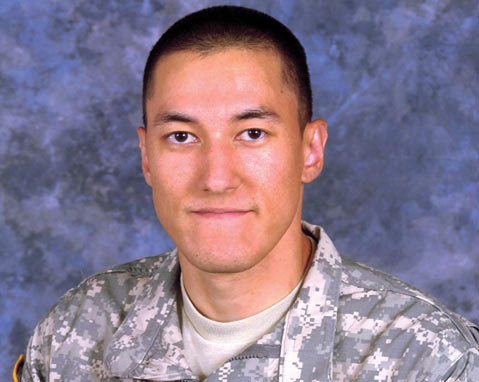New Peace Leadership Director Has Seen War
Paul Chappell Served in Iraq

The paths of war and peace are often perceived as polar opposites. In Paul Chappell’s case, however, it was his experience as a commander of defense missiles in Iraq that led him to become involved in the Nuclear Age Peace Foundation. The NAPF, a recognized UN Peace Messenger Organization, is a Santa Barbara-based nonprofit, nonpartisan group dedicated to abolishing nuclear weapons and strengthening international law.
Chappell was appointed in mid-September to serve as NAPF’s new Peace Leadership Director. As such, it is his responsibility to instill hope for a peaceful world in the minds of the next generation. To that end, he speaks at schools, among other forums, sharing the idea and ideals of nonviolence. “Once you fight people’s apathy and get them inspired – that’s the hardest part,” Chappell said. “Then you can give them a lot of direction and teach them the fundamentals of waging peace.”
Chappell, technically a soldier until he is released from duties of service next month, said that his time spent at West Point preceding his involvement in the armed forces heavily influenced his pursuit of nonviolence. “I think most soldiers want peace, but they see peace as the objective, not the means of arriving at that objective,” Chappell said. “And for me, the transformational process was seeing peace, not just as the objective, but as the only means of arriving at the objective.”
Chappell first caught NAPF founder and president David Krieger’s eye after the release of his new book, Will War Ever End? A Soldier’s Vision of Peace for the 21st Century, which explores the attainability of global peace. Krieger, recognizing that Chappell would be a great match for the position, immediately emailed him and encouraged him to apply.
“He’s seen the other side and understands it,” said Steven Crandell, NAPF director of Development and Public Affairs. “He works with a military approach, except, this time, his rigorous approach is peace.” Chappell agreed that he intends to bring his skills picked up in the military to reinvigorate the traditional mode of reaching peace, incorporating discipline and solidarity where they were rejected before. The difference is that a quest for peace is constructive. “You’re not killing people and you’re not using deception,” Chappell said.
Given the current state of American politics, public interest in stopping the nuclear arms race remains high. To accommodate the growing concern, Chappell and his colleagues developed an action alert network, in which NAPF supporters are notified at times when they should contact a local representative or politician regarding current events.
The Peace Leadership program was started in 2008 in an effort to personalize the message of nuclear disarmament and peace – to inspire volunteers to act locally within their own communities and social circles. Chappell is the first director for the Peace Leadership Program since it morphed from the Youth Empowerment Program into its present form to meet expanding national needs.
“There’s a lot of interest in abolishing nuclear weapons in the nation,” Chappell said. “They threaten the survival of humanity and the entire planet.”
For more information on how you can get involved, visit wagingpeace.org.



